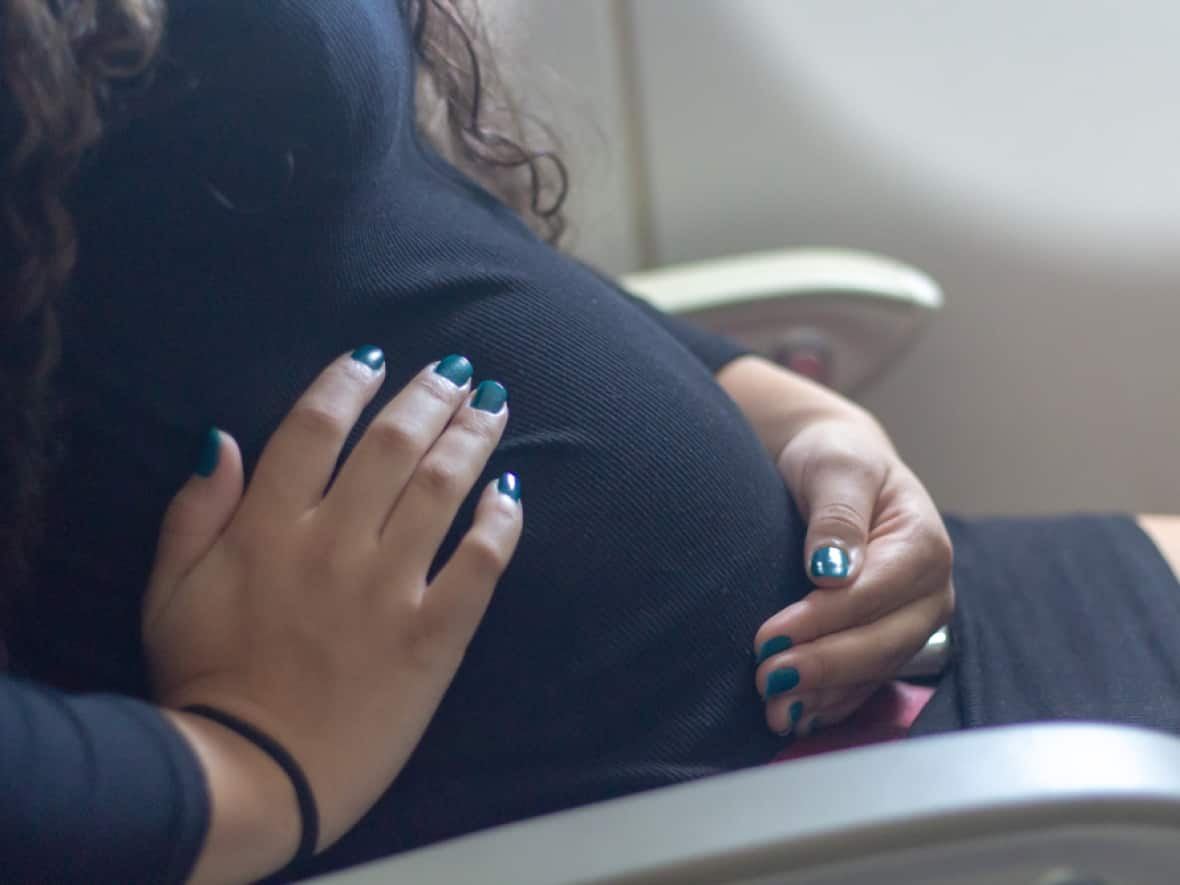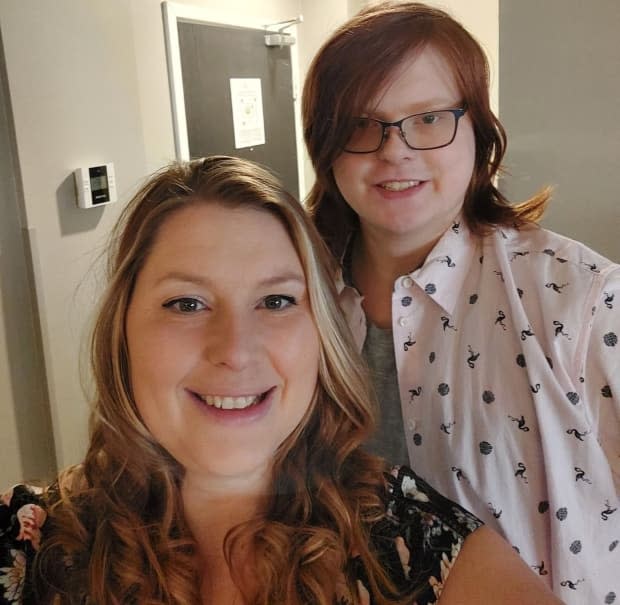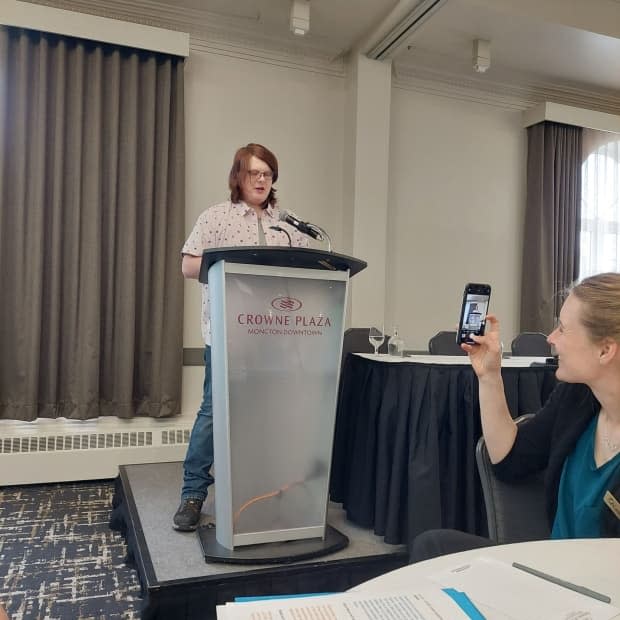Support for fetal alcohol spectrum disorder welcomed, but families say more needs to be done

A woman who has a child with fetal alcohol spectrum disorder says a recent funding announcement gives other families some reason for hope.
In a news release Friday, the province announced $800,000 to increase capacity at the Fetal Alcohol Spectrum Disorder Centre of Excellence in Dieppe.
The move is part of a five-year action plan the province released in February 2021 to address addiction and mental health services.
Alicia Munn is the president of the Fredericton fetal alcohol spectrum disorder support group, which aims to advocate for families by providing a network of connection and education.

She hopes the funding will address the backlog of families trying to get a formal diagnosis.
"We have a lot of families in New Brunswick that have suspected FASD, and we have a lot of adults in the province as well that have suspected FASD. But a lot of people don't have a formal diagnosis."
The centre was created in 2012 to provide prevention, diagnosis and intervention services.
In an email to CBC News, the centre said it is now serving more than 800 families, but the number is increasing, and it gets eight to 10 new referrals monthly.
The centre estimated 250 babies a year in New Brunswick are born with the disorder.
More than 4,000 students from kindergarten to Grade 12 in the school system and more than 31,000 people in the province at large have fetal alcohol spectrum disorder.
"The centre of excellence was able to produce 24 diagnoses a year prior to COVID," Munn said. "And then during COVID, they were only able to diagnose four a year and when we know that four per cent of the population is affected, that doesn't create a lot of opportunity for diagnostics when we know that the numbers are quite high."
More than 300 families in the province are waiting for a diagnosis.
Fetal alcohol spectrum disorder can lead to physical and/or neurodevelopmental disorders affecting children whose mother consumed alcohol during pregnancy.
The disorder is the leading cause of neurodevelopmental disability in Canada.
It surpasses the number of people with autism, cerebral palsy, Down syndrome and Tourette syndrome combined, according to the Canada FASD Research Network.
Munn, who is also a licensed practical nurse, has a 21-year-old son with the disorder.
He was able to get a diagnosis when he was 18.
Munn's group works closely with the people who do community liaison for the centre.
"We have community liaisons in every region of the province ... But their workload is so intensive. Our Fredericton community liaison, she has a workload of 250 people and she works part time."
The centre stated it, "has 5 Regional Community Coordinators and 1 Aboriginal Liaison."
It is also the only facility in the province that meets the national standard to provide a diagnosis.
There are other issues that make it difficult for families seeking a diagnosis,
"You have to have an admission from the biological mom or suspected or probable information that has contributed to awareness of prenatal alcohol consumption during pregnancy. If you don't have that component, then that can actually prevent a lot of families from getting that diagnosis," Munn said.
"There's also lot of children in our foster care system that don't officially have guardianship. So therefore, the biological parents can still make the decisions and if they feel that their child doesn't need a diagnosis, then they don't have to recommend or support that diagnosis being done."
"Many of our children in the foster care system are in care of the minister or in our social services system and don't have family physicians, and you have to have a referral for this diagnosis."
Social stigma
Munn hopes more will be done to improve awareness and education around fetal alcohol spectrum disorder.
"A lot of individuals don't know they're pregnant until they're 11 weeks, and there's a misconception that you have to be an alcoholic or you have to struggle with substance to have a child affected by FASD and that's not the case."
"No mom ever wants to damage their child. No mom ever wants to wake up and say 'I've done this and I've caused my child permanent brain damage,'" Munn said.
Munn knows firsthand how the disorder can affect the families involved.
"We struggled with the school because the school thought that he was more than capable, and they had a substantial amount of expectations ... I've often said my world is perfect until I walk outside my four walls because people don't understand what my family needs. They don't understand what is going on with my son and then I'm constantly advocating and educating."

Munn's son struggles with sensory issues because of the disorder, but Munn said it hasn't prevented him from living alone, holding a driver's licence and maintaining full-time work.
However, it is still an ongoing process to secure care.
"We've been able to get him 10 hours of home support five days a week, and he's been through 14 support workers because they look at him and they see that he's able, but they don't realize the part that's affected by the prenatal alcohol exposure."
Munn said families also need support post-diagnosis.
This includes staffing full-time community liaisons, having outreach centres, drop-in centres and providing respite services to support caregivers.
"It's really challenging every which way you look at it, so we need definitely some more education. We need more community resources. We just need that intimate connection with families."


